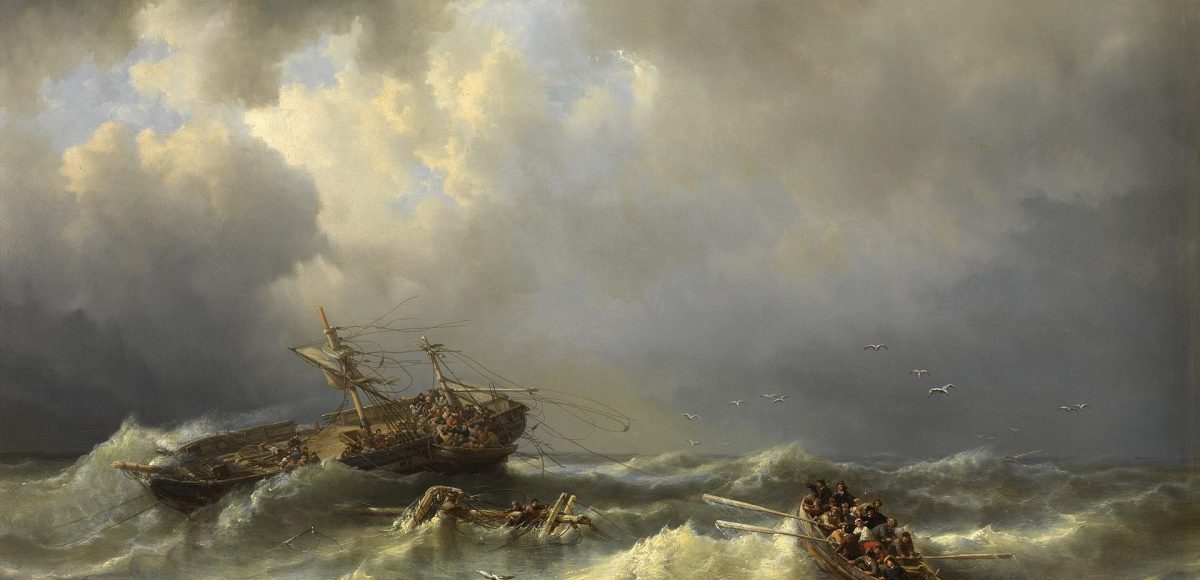Getting told to cheer up isn’t the worst aspect of the social-media-politics vortex by any means, but it’s one of the most soul-sapping.
You ok hun? Well, no, actually. In any sane, healthy, discourse the ability to not be okay shouldn’t simply be allowed, it should be understood as deeply necessary. A long litany of calls to dry your eyes, pull your socks up, and not to mourn, become classic responses to the kind of political shock that we witnessed on election night (and that many of us went through in 2014).
We remain trapped in a culture of British deference and emotional repression – and few tropes are more effective at keeping this in place than the injunction to pack up your troubles. But the kit bag now has a life of its own, animated with centuries of untold, undead, troubles.
For what is “Get Brexit Done” if not the promise to ditch that writhing canvas ball of pain into the sea, to fire it out of a canon into the mid-Atlantic? Having been told that everything is essentially fine for so long, against all the evidence, some feel that one final act of erasure, if bold enough, might just do the trick.
The game of our newly emboldened government is simply to provide enough distraction before those troubles, inevitably, wash back ashore. There is no vision beyond that. As a measure to get and retain power from distraught people, it’s very smart. As a means to solve any of the existential crises we now face, it is catastrophic.
The trauma of Britain’s missing places and people is volatile enough, it seems, to damage a great deal. It invites us to write-off the rich cultural and political achievements of the working class of the north of England, to brand them class traitors, or dupes. Why? Because acknowledging the extent of the inter-generational trauma and forgetting that led to Thursday night’s implosion of Labour’s English heartlands, doesn’t fit with the gut group response of quick positivity.
These habits exist in Scotland too. It’s complacency of the first order to think otherwise. Unlearning British nationalism with its militant drive to “keep calm and carry on” is the great adventure Scotland has set out upon. But the real challenge is to come up with something more generous and honest, to not simply offer up a Scottish variation on the theme that everything is essentially fine in a world on fire.
The task now, as we gear up to witness still greater misery and division inflicted by the British establishment, must be existential in every respect.
Firstly, there is no easy route to move beyond one basic hard truth – in 2014 we handed back sovereignty. The people of Scotland didn’t want or feel able to wear it. The incoming UK government will remind us of this again and again – pressing upon the deep sore truth that there is no inalienable reason for Scotland to be allowed to function as a polity, especially in a political context in which might is seen to be right. Existing institutions can be robbed of their status, branches of the Scottish establishment can be bought and sold, popular sentiment can be ignored, corralled and manipulated.
In the face of such an onslaught, there can only be the demonstration of what sovereignty might be for. It is not enough to compare the southern psychodrama by proclaiming our own apparent virtue in contrast. The different space that we have the opportunity to shape, that the north of England lacks, is a privilege. And when Brexit combines with the new majoritarian freedom of the UK government to pick apart the distinctive Scottish social settlement, it will no longer be anything like enough to rely on being less cruel, less unequal or to pin our hopes on feeding a less rapacious form of capitalism.
Because the second existential question we must face down is a government that will seek to ride the coming wave of climate chaos with a mix of xenophobia and opportunism, with a nervous eye on the fossil capital that paid for its elevation to office.
Climate change will relegate most comforting political realities – from national borders, to the warm notion of “we the people” – to abject irrelevance. It will undermine transnational agreements that have facilitated some freedom of action for small nation-states.
Nothing is fine, there is no place for calm, there are many to weep for. But unless the forces in Scotland supporting independence start from the premise that we must shape our own response to the great crises of our times, by refusing to cooperate with a destructive system, it will just end up replaying the despair of Blyth Valley a bit further north.
Fundamentally, we can’t offer a couthier version of the status-quo, because a radical government in London is about to spend the next five years smashing it and pitting communities (and the four nations) against each other in a race for the scraps.
The alternatives are there for the taking. We can build a new state at the leading edge of the post-carbon revolution, we can learn to judge the success of a country by the status of those with the least, and we can reject the absurd isolationism of the British twilight with a genuine commitment to internationalism.
There is no lifeboat. Globalisation binds us together on one ship with peoples far beyond this wee island – the vessel cannot be unbuilt without sinking. Our only hope is to assert ourselves, and, in response to orders from above, to make a great deal of noise below decks.
